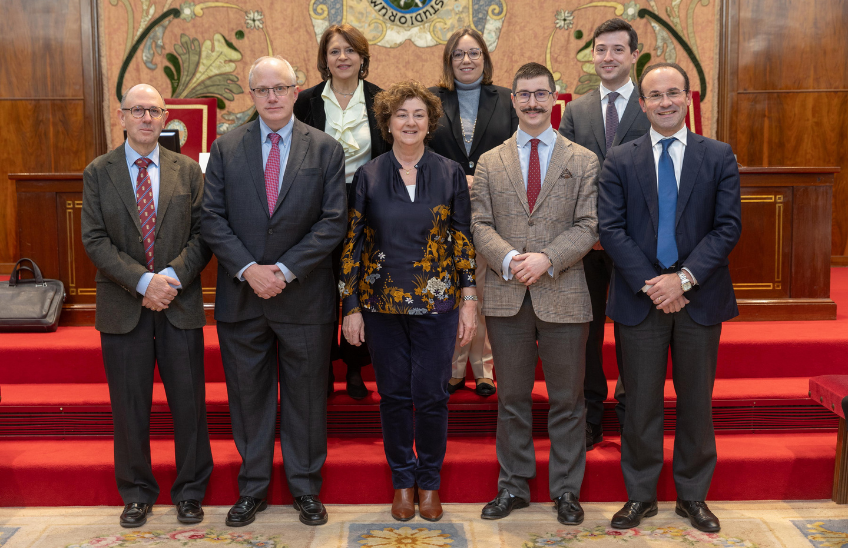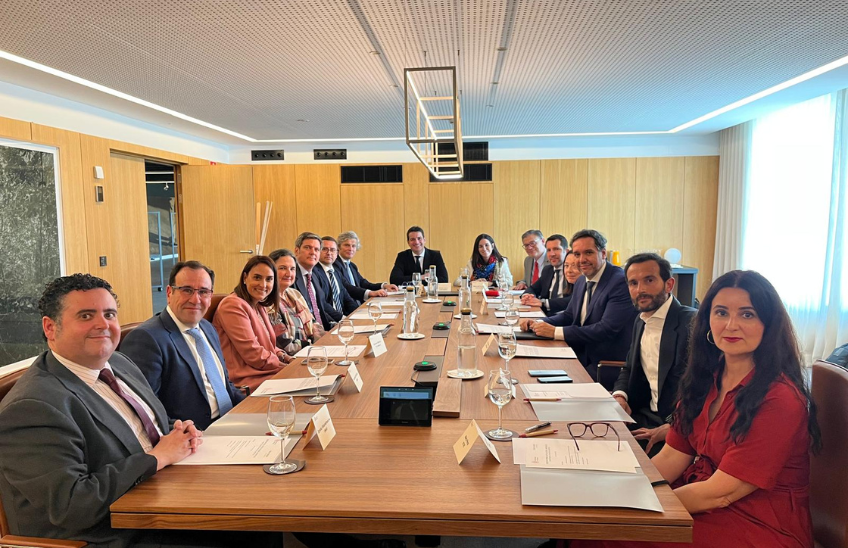The common good from the perspective of the Constitutional Law
Experts meet at the University of Navarra on the occasion of the XXVth workshop of classroom of Parliamentary Law

PhotoManuelCastells/The dean of the School Law School, Mercedes Galán, in the center, together with the academics who participated in the workshop.
22 | 11 | 2024
The common good and the different interpretations and analyses that can be made from the perspective of Constitutional Law focused the XXV workshop of the classroom of Parlmentary Law, held at the University of Navarra with the degree scroll: "Constitutional order and common good".
Adrian Vermeule, Full Professor of Constitutional Law of Harvard University and member of the American Academy of Arts and Sciences, gave the inaugural lecture discussion paper . Under the degree scroll, "The Indispensability of the Common Good in Constitutional interpretation", Vermeule warned of the importance of not remaining in a positivist originalism, which conceives the application of law as a merely historicist task. The scholar stressed that interpretation should focus on the search for what is just in concreto, taking as sources not only the law, but also the general principles of law, as bequeathed by the Judeo-Christian Western tradition.
The workshop continued with a roundtable with the participation of Roger Boada Queralt, professor teaching assistant of Constitutional Law (ESADE), Pilar Zambrano, professor of Philosophy of Law (University of Navarra) and Pierre-Hugues Barré, professor teaching assistant of Constitutional Law (Institut d'études politiques, Paris) who, moderated by the Full Professor of Constitutional Law of the University of Navarra, Fernando Simón, addressed the relationship between the common good and the limits of power in the School of Salamanca, especially in Francisco de Vitoria and Francisco Suárez; judicial activism and the risks it entails for the common good; and a critical approach to contemporary liberalism.
The imperative need to recover classical thought and transplant the great intuitions of the past to the demands of the present were some of the main conclusions drawn after the discussion. The judicial activism of some constitutional jurisdictions and human rights courts was also questioned, due to their voluntarism and lack of support in the Constitutions and treaties that legitimize them.
position The closing lecture , "Classical liberalism and the common good", was given by Josep María Castellá Andreu, Full Professor of the University of Barcelona and former member of the European Commission for Democracy through Law (Venice Commission). In his lecture, Professor Castellà exposed some points of confluence between the classical tradition coming from Aristotelianism; Roman and medieval jurisprudence; and the great "classical" liberal authors, from the 18th to the 20th century. Using thinkers such as Edmund Burke and Friedrich Hayek as models, he insisted on the importance of respecting inherited institutions, as well as an organic evolution of law, rooted in historical understanding and attentive to the dangers of abuse of power.

